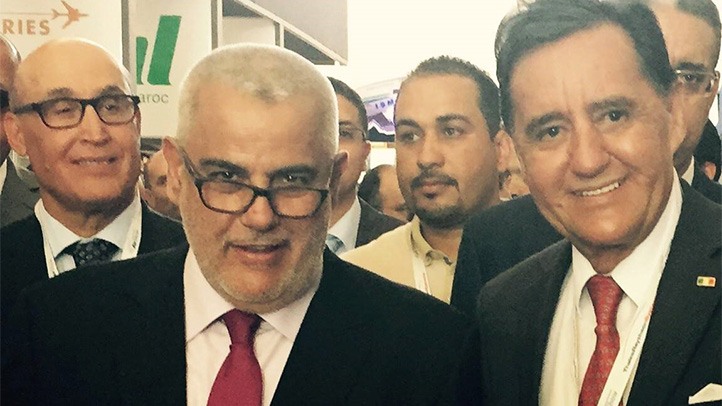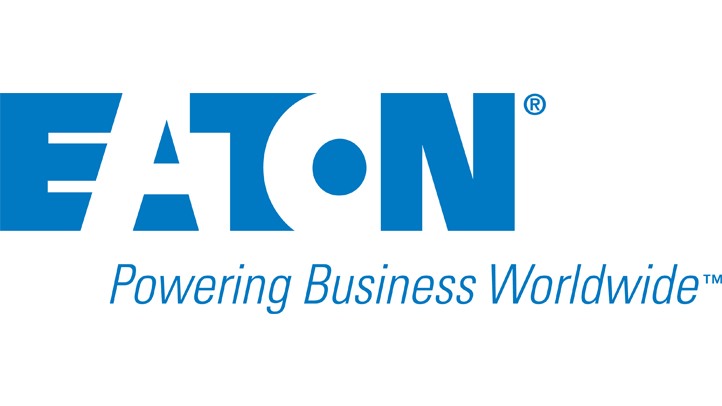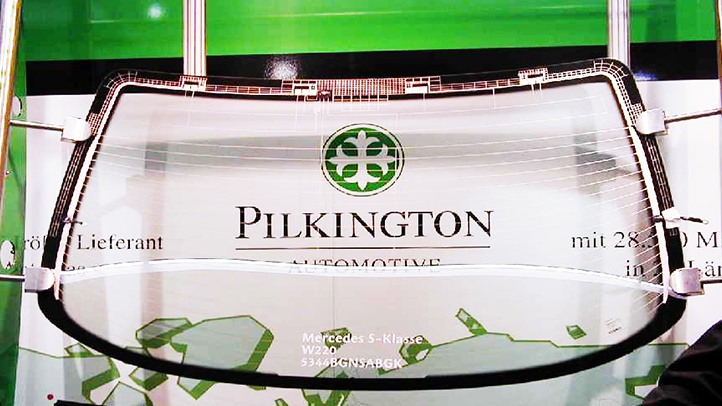CECATI 84 is a public institution, part of the Secretary of Public Education SEP, dedicated to the development and teaching of technical training courses.
Courses available:
CNC MACHINING
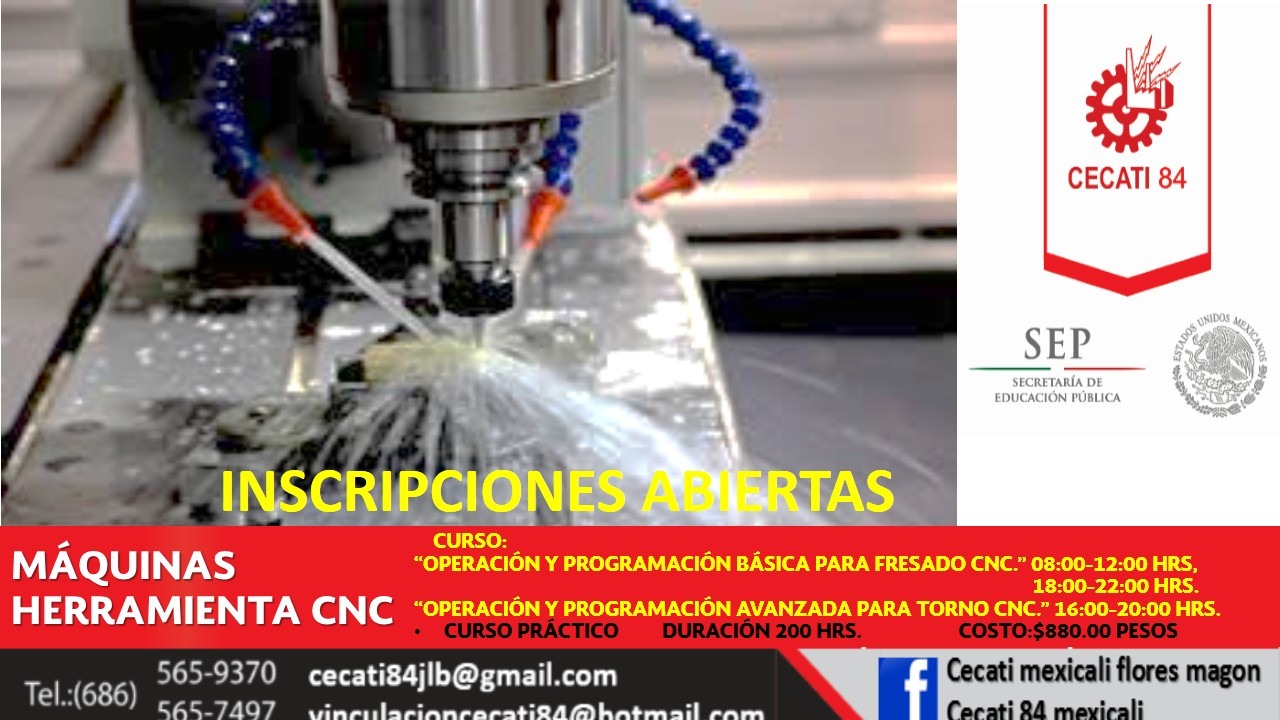
WELDING
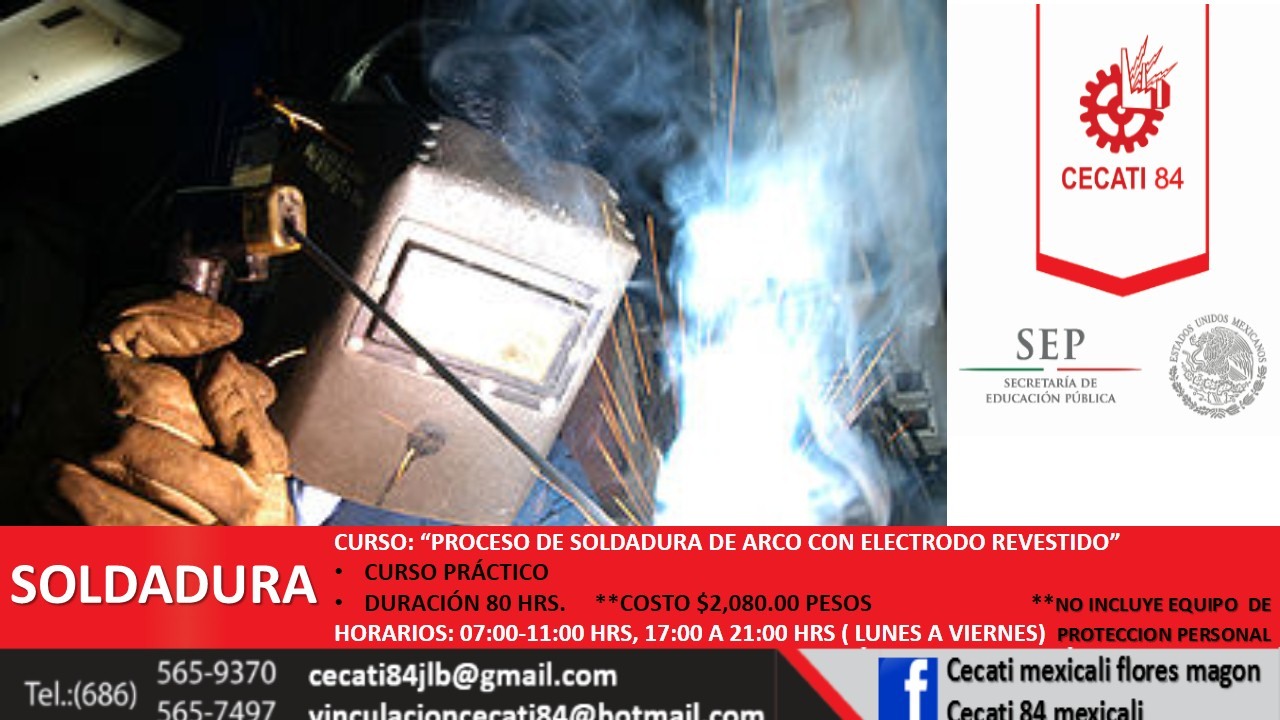
ELECTRONICS

AIR CONDITIONING

AUTOMOTIVE MECHANIC
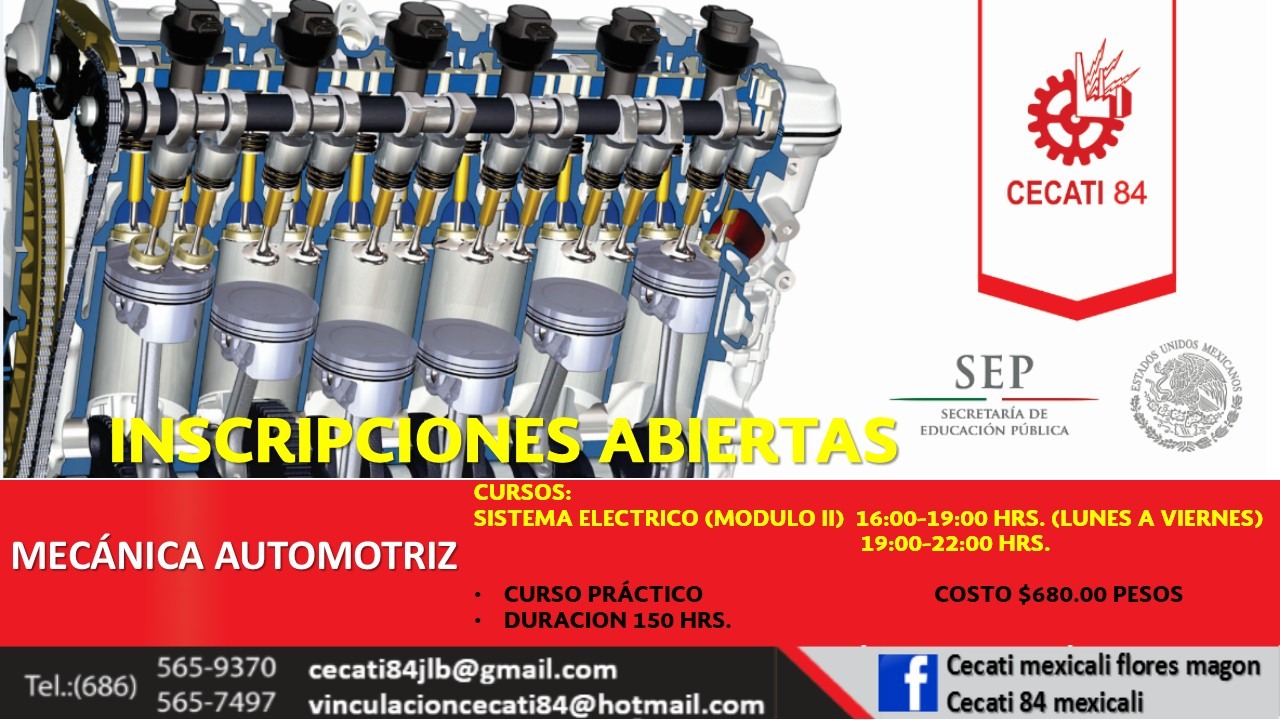
AUTOMOTIVE ELECTRONICS
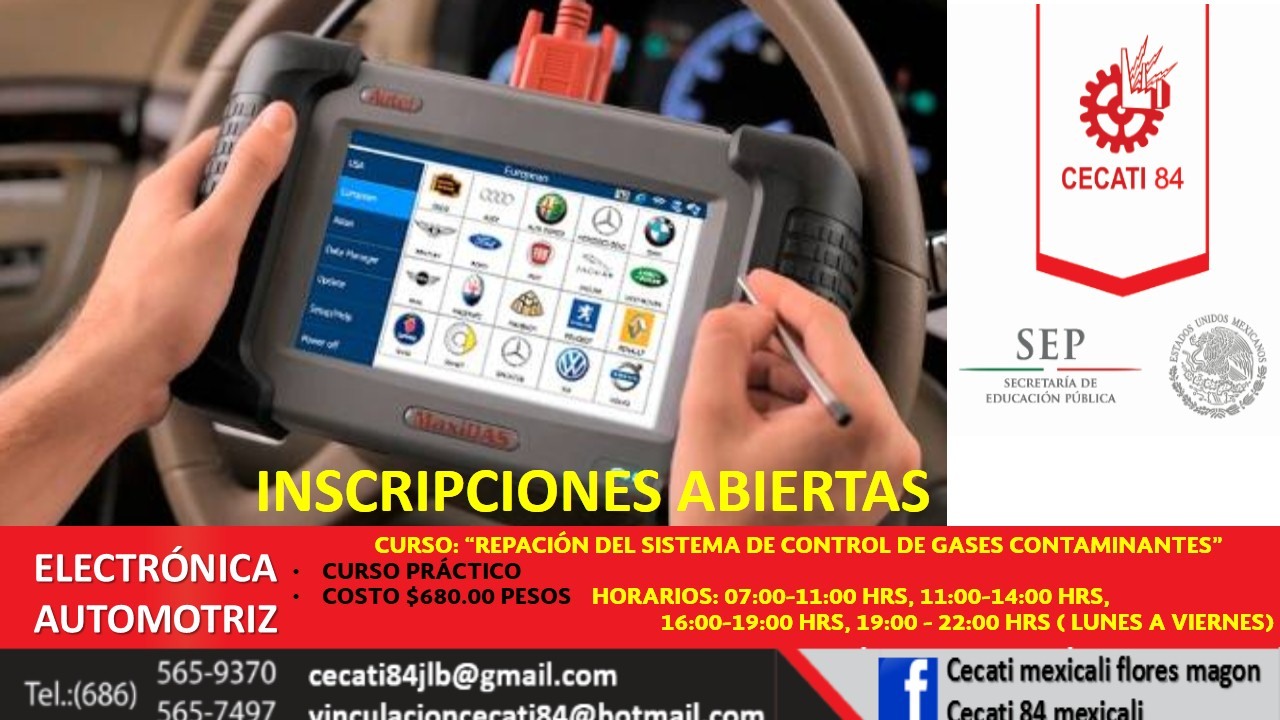
DIESEL MECHANICS

For more information:
ING. IGNACIO RAMÍREZ
JEFE DEL ÁREA DE VINCULACION
CECATI No. 84
AV. BRASIL Y JAVIER ROJO GOMEZ S/N
COL. ALIANZA PARA LA PRODUCCIÓN
MEXICALI, B.C.,
TEL: 01 686 565-93-70 Y 01 686 565-74-97
Cel. (686) 2710973
www.cecati84.org
In picture Morocco PM Abdelilah Benkirane عبد الإله بنكيران and PIMSA Business Development VP, Xavier Rivas.
“Morocco represents and untapped potential of mutual interests to develop our manufacturing and aerospace industry and a key partner for the future of our regions.”
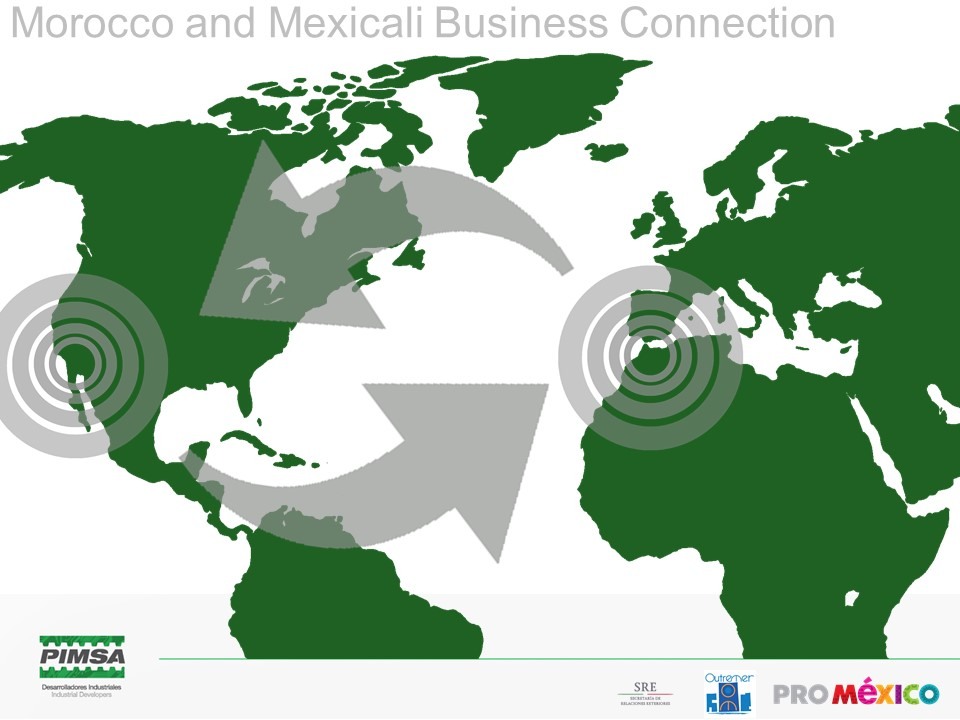
We have laid the foundations for the development of the industrial influence of our region, a region open to synergies, networking, knowledge sharing and the advancement of partnerships that benefit the strategic vision of today’s globalized economy.
We appreciate the collaboration of the Honorable Ambassador Andres Ordonez of the Embassy of Mexico in Morocco, Nadia Zeggar of ProMexico Casablanca and Eveline Lequien of Agence Outremer.
Production was up 2% last year to 189.5 million ounces
Mexico led the world in silver production in 2015 for the sixth year in a row.
Mexican mines produced 189.5 million ounces, up 2% over 2014, far ahead of the second-biggest producer, Peru, with 135.9 million ounces, according to the World Silver Institute.
Overall, however, world silver production was down 2% to 886.7 million ounces due to declines in Canada, Australia and China.
Mexico’s production increase came as a result of higher output at the Saucito and Saucito II mines operated by Fresnillo and the El Cubo mine belonging to the Canadian mining firm, Endeavour Silver.
The institute pointed out that Mexico’s silver production has risen steadily since 2010, when production totaled 141.8 million ounces.
GFMS analyst Erica Rannestad said one reason for higher output in Mexico was a reduction in costs brought on by the peso’s decline in value against the U.S. dollar, providing an impetus for greater production.
She said expansion of the San José mine, owned by another Canadian company, Fortuna Silver Mines, could propel Mexican production to yet another increase in 2016.
Worldwide demand for silver rose from 1.13 billion ounces in 2014 to 1.17 billion last year but the price dropped from US $19.08 per ounce to $15.68.
Source: Mexico News Daily
MEXICALI, BAJA CALIFORNIA — Power management company Eaton recognizes its lighting facility, located in PIMSA II, Mexicali, Baja California, México, for achieving “zero waste-to-landfill” by nearly eliminating all wastes sent to landfills through recycling, re-use, new work processes and other means.
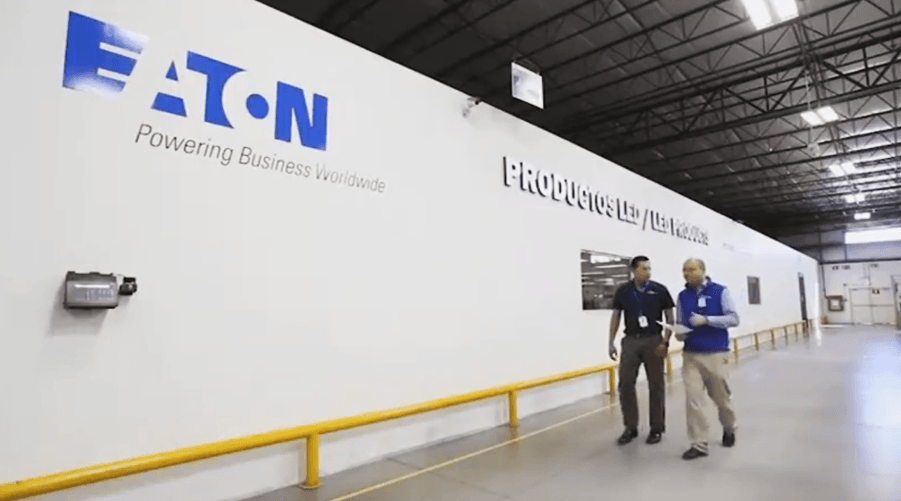
Eaton encourages its manufacturing sites to achieve zero waste-to-landfill as part of its waste management program and also as a means to reduce the release of greenhouse gases (GHG) associated with landfills, especially methane, a GHG 20 times more potent than carbon dioxide. In 2014, Eaton reduced its landfilled wastes by about seven percent, or 1,500 metric tons, as part of a global zero waste-to-landfill program. This eliminated 2,500 metric tons of CO2 that otherwise would have been released during the transportation and storage of landfilled wastes in 2014. Together, more than 60 Eaton sites around the world have achieved the goal of sending zero waste to the landfill.
“Our commitment to waste reduction and protecting the environment are high priorities at the Mexicali lighting facility,” said Alejandro Garza, plant manager. “Doing what’s right for the environment is part of our culture of doing business right.”
The Mexicali facility has over 1,000 employees all involved and committed to environmental protection. The facility manufactures indoor recessed, track, outdoor and exit and emergency light-emitting diode LED and non-LED lighting fixtures.
Eaton defines “zero waste-to-landfill” as consistently achieving a landfill waste diversion rate of 98 percent through either reuse, composting, recycling, or incineration – but only if the heat generated by incineration is collected and used in order to create more energy than was required for the incineration process. Eaton zero-waste sites undergo an intensive audit process that includes verifying that at least 98 percent of a site’s waste is diverted consistently for three months.
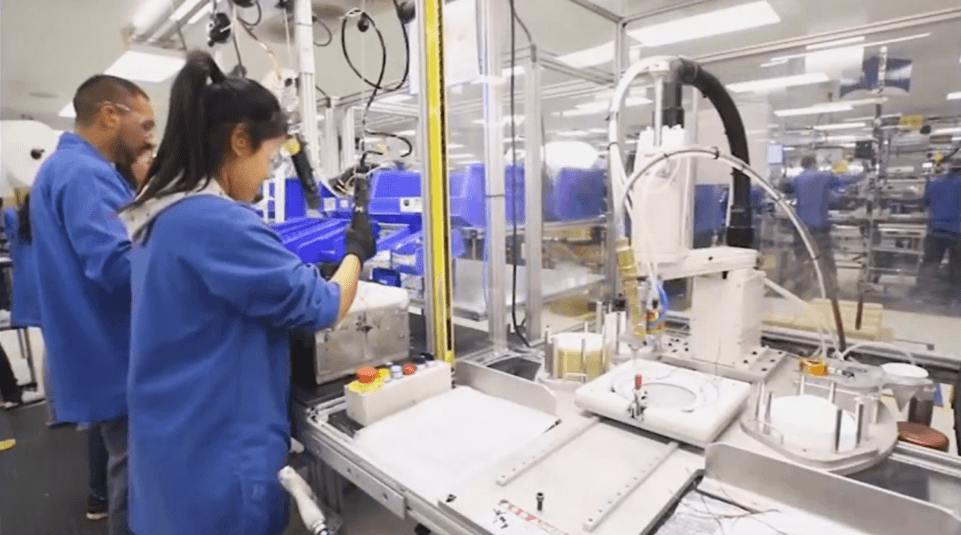
The Mexicali facility’s waste reduction program began in 2014. A plan was developed that called for landfilled materials such as metal scrap, cardboard, pallets, plastic, general office trash and other wastes to be recycled, reused, converted to energy or eliminated from work processes. The training and involvement of employees, vendors and contractors were key factors for this achievement.
“With help from Eaton’s Corporate Environment, Health and Safety (EHS) staff, our Mexicali facility was able to integrate new work processes and awareness training into existing Eaton business processes,” said Manuel Alcaraz, facility EHS manager. “And with Eaton’s focus on doing business right, it didn’t take long for a culture of sustainability to develop among our employees.”
“Projects such as zero waste-to-landfill help deliver the environmental performance that reflect Eaton’s commitment to be a leader in sustainable business practices,” said Harold Jones, Eaton’s senior vice president for EHS. “And, we are striving to get better. Eaton has pledged to reduce GHG emissions by 25 percent, indexed to sales, by the end of 2015. It all starts with our employees generating the ideas and enthusiasm to help Eaton do business right.”
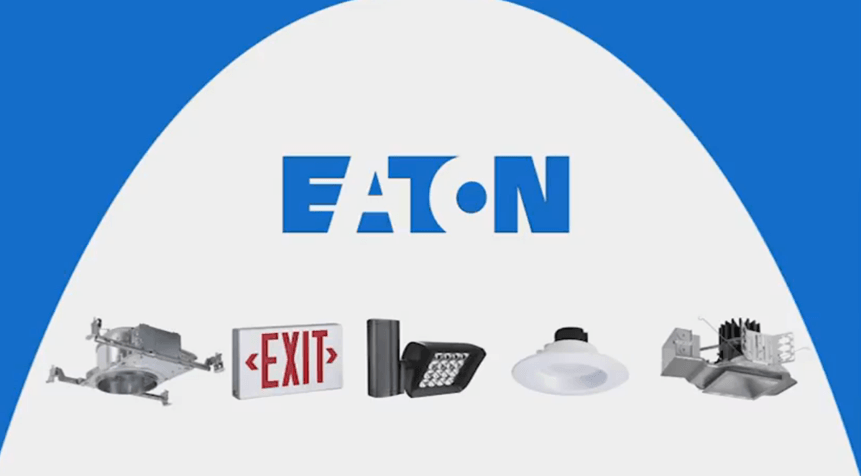
Eaton’s electrical business is a global leader with expertise in power distribution and circuit protection; backup power protection; control and automation; lighting and security; structural solutions and wiring devices; solutions for harsh and hazardous environments; and engineering services. Eaton is positioned through its global solutions to answer today’s most critical electrical power management challenges.
Eaton is a power management company with 2015 sales of $20.9 billion. Eaton provides energy-efficient solutions that help our customers effectively manage electrical, hydraulic and mechanical power more efficiently, safely and sustainably. Eaton has approximately 97,000 employees and sells products to customers in more than 175 countries. For more information, visit www.eaton.com.
Contact
Manuel Alcaraz
tel. +52 (686) 500-6138
Source: EATON
Ford knew its decision to build a new plant in Mexico would create a political firestorm, yet it forged ahead anyway.
The reaction was swift and predictable after Ford said it would invest $1.6 billion to build a new plant in Mexico.
Ford — which says it wants to increase profit on small cars — was undeterred.
Here are six reasons why:
1. Mexico’s numerous free-trade agreements provide flexibility:
We’re not talking just about the North American Free Trade Agreement, which was signed into law in December 1993 by President Bill Clinton.
NAFTA is just one of several trade agreements Mexico has with other countries. In addition to NAFTA, Mexico has 10 other free trade agreements covering 43 countries, according to ProMexico, an economic development arm of the Mexican government.
This gives Ford the flexibility to ship cars from Mexico to the U.S., Canada and to countries in South America.
2. Efficient logistics:
Automotive executives also say Mexico’s ports and rail systems make it easy to export cars out of the country. Joe Hinrichs, Ford’s vice president and president of the Americas, said Mexico’s robust transportation logistics are among the reasons Ford is expanding in Mexico.
3. Lower wages:
Ford’s labor costs in Mexico have always been much lower than in the U.S.
U.S. autoworkers made, on average, just under $30 per hour compared with just more than $5 per hour in 2014, according to Kristin Dziczek, director of the labor and industry group at the Center for Automotive Research in Ann Arbor.
In November, the UAW pushed Ford as well as General Motors and Fiat Chrysler Automobiles to agree to essentially eliminate an entry-level wage structure put in place in 2007 that lowered the automaker’s U.S. labor costs and led to the addition of thousands of jobs in the U.S.
Over time, all of Ford’s entry-level workers in the U.S. will see their wages increase to about $29 per hour. While the UAW has touted the raises as a huge win for U.S. workers, it also widens the labor cost gap with Mexico.
Hinrichs declined to comment directly on the impact of that new contract when he spoke with the Free Press on Tuesday but did acknowledge that “labor costs” were among the factors.
4. Keeping up with the competition:
Ford is hardly alone in its decision to invest more in Mexico, and Ford cannot allow political pressure to interfere with its ability to compete with other automakers that are also expanding in Mexico.
In recent years, General Motors, Honda, Hyundai, Nissan, Mazda, Toyota and Volkswagen have all announced plans to either expand existing plants or build new ones in Mexico. Fiat Chrysler Automobiles also has said it is considering an expansion of its production there.
Currently, four other automakers produce more vehicles in Mexico than Ford. They are: Nissan, GM, Fiat Chrysler and Volkswagen Group.
5. Existing presence in Mexico:
Ford has been building cars in Mexico since 1925, and it’s been working pretty well.
Ford already operates two assembly plants, two stamping plants and an engine plant in Mexico. It builds the Fiesta, Fusion, Fusion Hybrid, Lincoln MKZ, Lincoln MKZ Hybrid, four-cylinder and diesel engines in Mexico, and the quality of those products has long been on par with its American-made products.
6. Still committed to the U.S.:
It’s not like Ford is pulling up stakes and moving to Mexico. The automaker is still investing heavily in the U.S., and It’s worth noting Ford’s talking points on this issue.
Last year, Ford built 2.5 million cars and trucks in the U.S. — more than any other automaker.
Since 2011, Ford has invested $10.2 billion in its U.S. plants. And over the next four years, will invest $9 billion more. That investment is expected to create or retain 8,500 U.S. jobs.
Last year, Ford invested $168 million at its Ohio Assembly plant to build heavy-duty trucks at that plant that were previously made in Mexico. The investment helped to keep more than 1,000 hourly workers employed. The UAW and Ford negotiated the move of the truck production to Ohio way back in 2011, as part of their last round of contract talks.
Source: Detroit Free Press

Moises Sotelo is the General Manager of NSG Group’s Pilkington in Mexico, a company manufacturing glass windshields for auto replacement market in USA.
Moises is a native of Mexicali, graduate of Tijuana Tech University, School of Engineering.
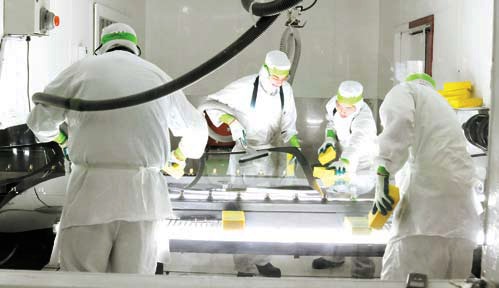
“It’s important to always be open to constant change; I never imagined I would end up managing a large company like NSG Group’s Pilkington. The challenges in my life have always been my drive, such as staying focused on every step of our manufacturing production programs.” – Moises Sotelo.
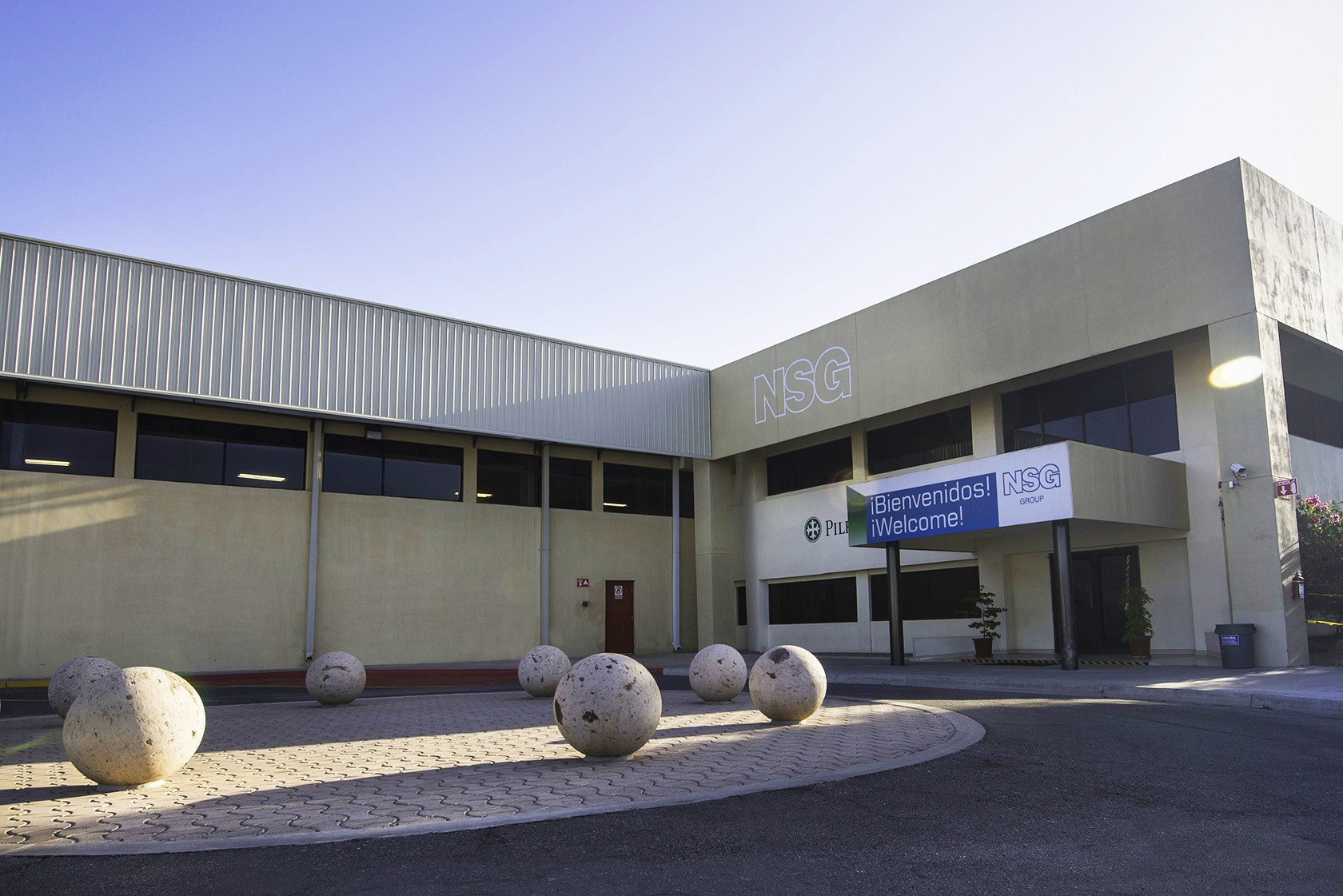
Subsidiary of the Japan-based NSG Group, Pilkington started operations in PIMSA, Mexicali, Baja California, in 1974. Currently, Pilkington supplies every major vehicle manufacturer in the world. It serves the Original Equipment (OE), Automotive Glass Replacement (AGR) Aftermarket and Specialized Transport sectors.
If interested in NSG/Pilkington capabilities, please email to: erick@pimsa.com.mx
PDF: PIMSA WHOS WHO MOISES SOTELO
Furukawa Automotive Mexico, located at PIMSA, Mexicali, Baja California, is a company specialized in auto parts manufacturing of electrical devices for airbag activation, fuse boxes, various harnesses and injection-molded plastic parts.

Furukawa, a Japanese corporation, started operations in PIMSA in 1998. Today, with over 2,000 associates, Furukawa has become a leader in the automotive industry due to the efforts in the development of its workforce and continuous improvement of its production processes.

On April 26th, 2016, Furukawa Automotive Mexico was recognized as one of the 100 best companies to work in Mexico, during the award ceremony of Great Place to Work® Institute.
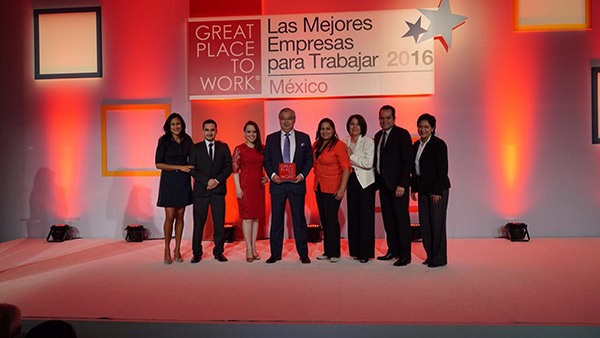
Congratulations to Furukawa Mexicali Team! A role model of dedication and production quality from Mexicali.
PDF: FURUKAWA Mexicali among the top 100 companies of Great Place to Work 2016
Xavier Rivas, VP Business Development of PIMSA, will attend International Marrakech Air Show, which takes place within the heart of the red city of Morocco, International Marrakech Air Show once again expands its wings for a 5th time. The show will showcase over 200 exhibiting companies from around the world and covers more than 70,000 square meters. Celebrating its 5th anniversary, this exhibition is dedicated to the aerospace industry and is recognized as being a major event on the international aerospace calendar.
With more than 15,000 visitors and 40 official delegations expected to attend, the show offers the perfect opportunity for attendees to create new relationships and increase their business.
We appreciate the support from ProMexico Casablanca.
PLQ-International-Marrakech-Air-Show-2016-EN_low
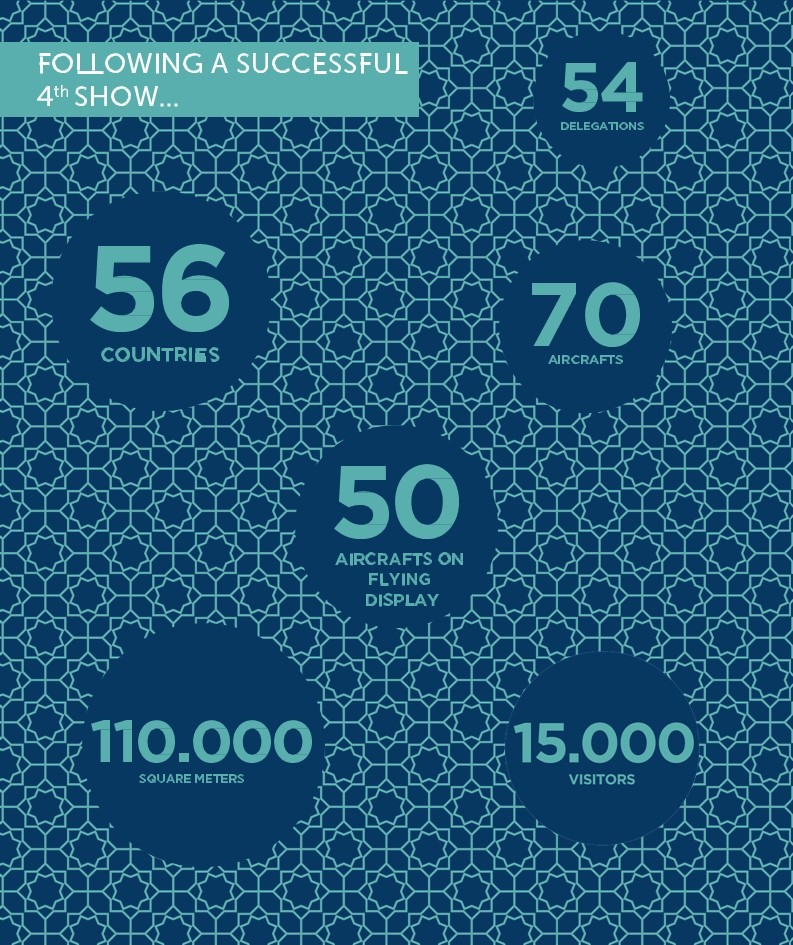
For more information visit: http://en.imas-aero.com/
If interested in networking with companies of this region during the event, please contact: erick@pimsa.com.mx
Download Brochure
A bit of Mexicali history, “Mexicali Rose” is a popular waltz ballad with music by Jack B. Tenney and lyrics by Helen Stone, published in 1923.
Tenney was a legislator for the State of California, a Democrat and later Republican, he ran for and won the California State Assembly in the 30’s. As chairman of the California Senate Factfinding Subcommittee on Un-American Activities, Tenney investigated alleged communists in California.
Tenney was born in 1898 in St. Louis, Missouri, then moved to Los Angeles, California in 1909; where he studied piano and organ at Holy Cross School. He served in the Army during World War I, then he returned to California in 1919 and worked his way through law school in 1930.
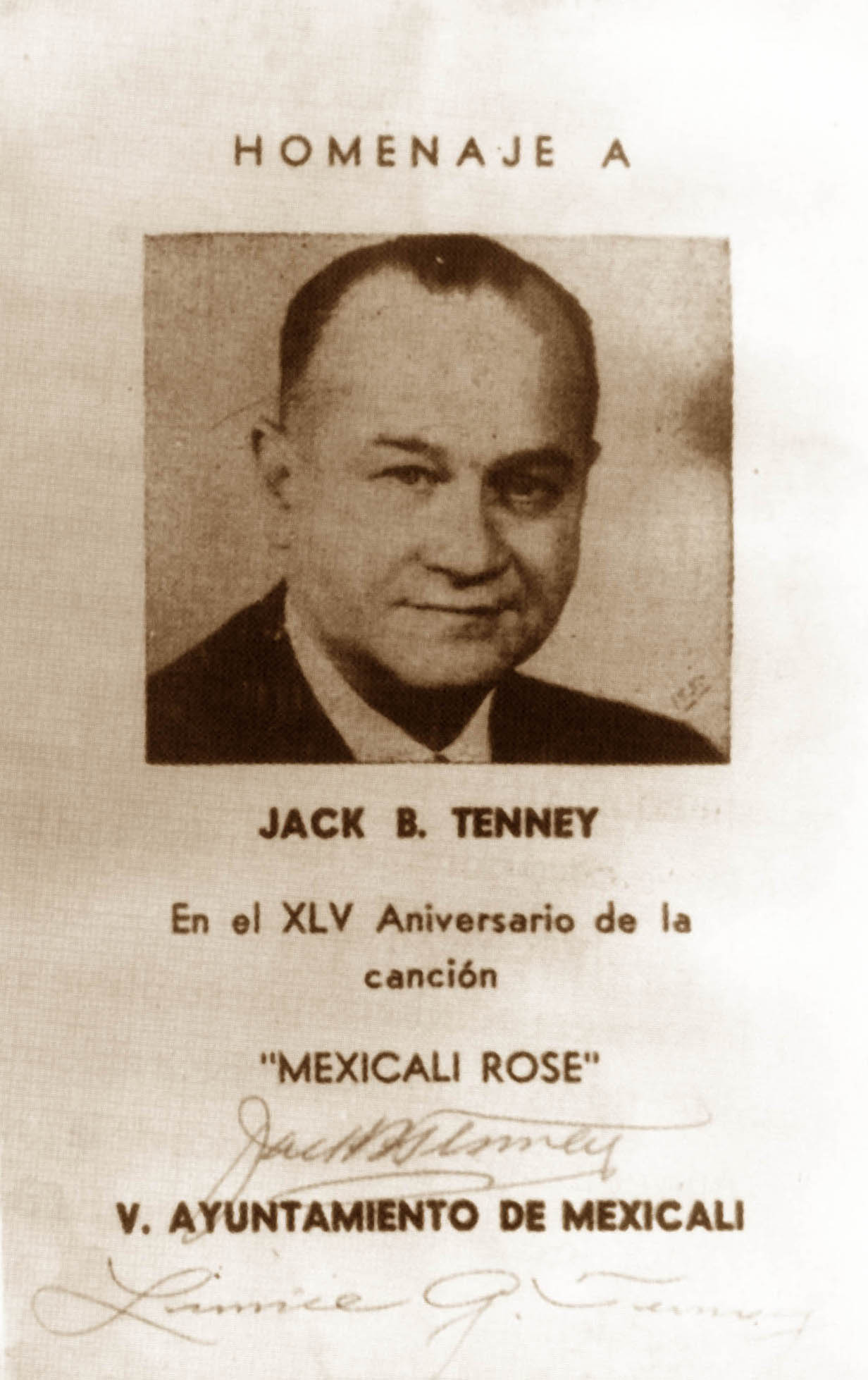
The story goes, that in the 20’s, while he was working as a pianist and orchestra director for the “Cabaret Imperial” in Old Mexicali, he wrote this popular song for a lady he fell in love with.
Bing Crosby, Gene Autry, Jerry Lee Lewis, among many other top singers, have recorded the song.
Lyrics:
Mexicali Rose, stop crying;
I’ll come back to you some sunny day.
Every night you’ll know that I’ll be pining,
Every hour a year while I’m away,
Dry those big brown eyes and smile, dear,
Banish all those tears and please don’t sigh,
Kiss me once again and hold me;
Mexicali Rose goodbye.
A beautiful song all of us should listen to during a calm moment.
PIMSA hopes you enjoy the following videos:
In the sixties, Mexicali Mayor Jose Maria Rodriguez presented the keys of the city to Jack B. Tenney, picture below:
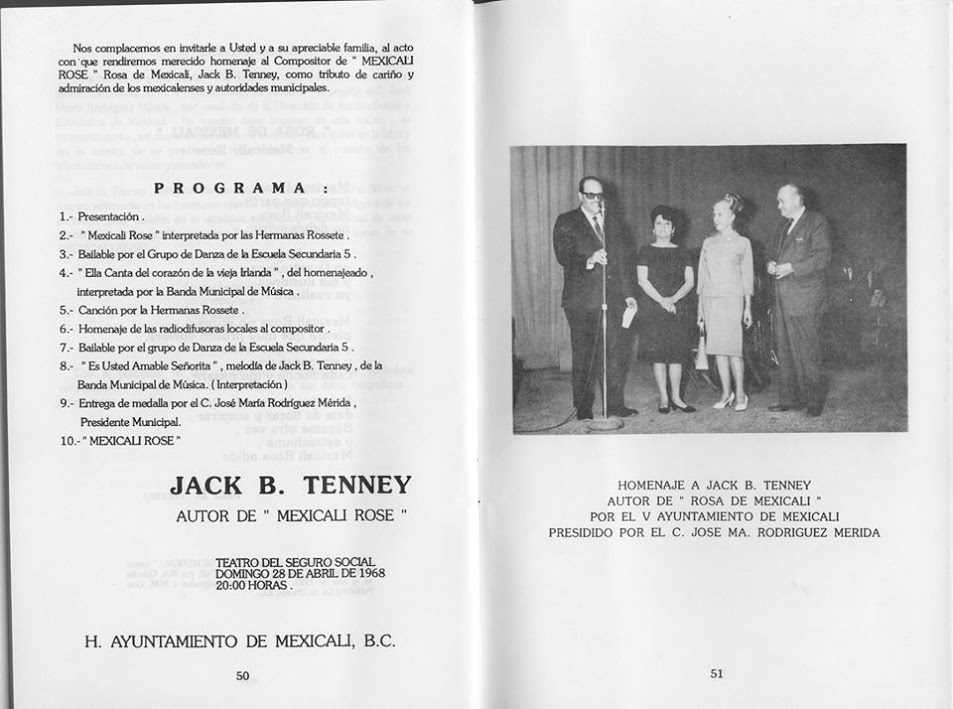

EVELINE LEQUIEN
PIMSA’s Advisor in France
A native of Paris, graduate of Ecole des Cadres Business School of Paris; Eveline has over 20 years of experience in international business and cultural activities.
Presently she is networking in France and Morocco for companies interested in doing business in the binational region of Baja California, State of Washington, California, Arizona, Nevada, Sonora and Baja California Sur; a market of 63 million people.
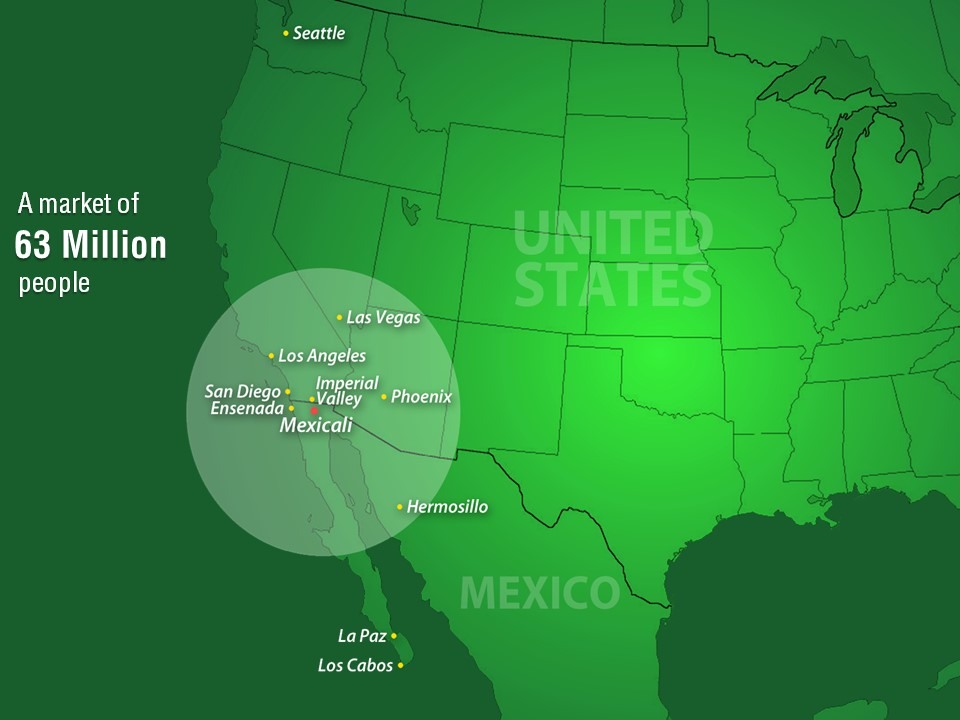
Her professional and ethical handling of European and Moroccan businesses is an important complement for PIMSA clients.
“We cannot offer false expectations to interested parties, no need; the advantages of the binational Baja California Region is already a business plus!” – Eveline Lequien.
Contact:
contact@agence-outremer.com
PDF: PIMSA Who’s who: Eveline Lequien


